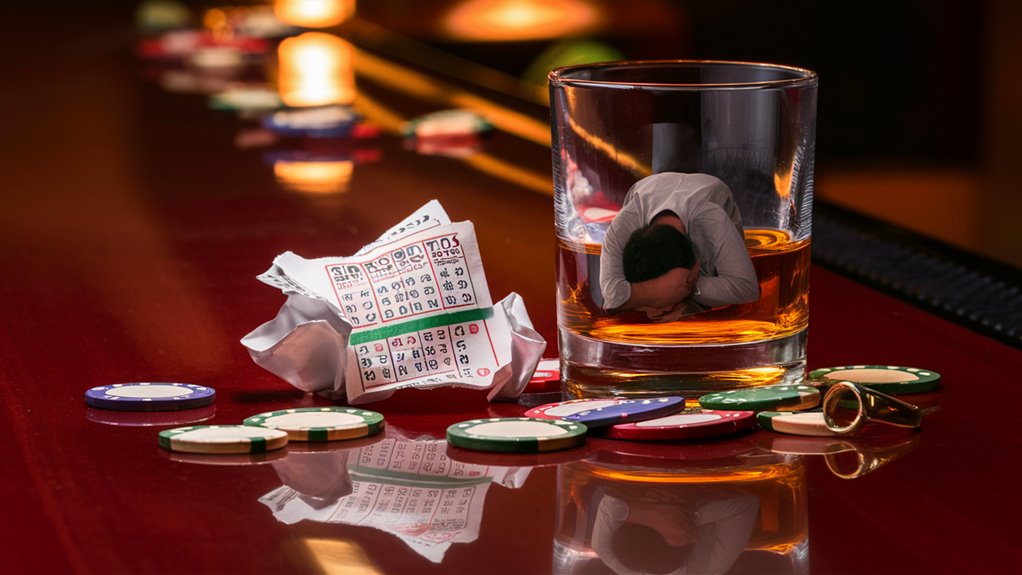When Winning the First Time Might Be Bad

When you win for the first time, it can make a dangerous false safe place that hides big flaws in your plan and how you do things. First wins can start a success bias, making people and teams skip important growth steps and not see key basic needs. Studies show that early wins make you 63% more likely to make big mistakes later, because of too much confidence and not seeing warning signs.
Hidden Dangers in Early Wins
How success works needs careful checks through many tests and strict checks. Without good stress tests and checking frameworks, early wins can make dangerous blind 온카스터디 공식파트너 확인 spots in how decisions are made. Groups that win the first time often don’t like advice and keep believing in their possibly wrong ways.
How to Keep Winning Right
To build lasting success, groups must use:
- Tests under many different situations
- Stress tests to check processes
- Ongoing systems to get better over time
- Tools to check how things are working and find weak spots
- Ways to keep adding feedback for more improvements
These parts make sure that how you win can handle real challenges and keep working well over time and different situations. Early wins should be used as chances to learn, not as the final proof that everything works well.
The False Safe Place
The False Safe Place: Thinking You’re Good When You Might Not Be
The Trick of Winning Early
Early wins can make you think you’re in a safe place that hides big flaws in how you perform and your methods.
Many who do well at first think their first big win proves they’re right, when they may have succeeded despite not the best methods. This calm from success can hurt how well you do in the long run and your potential to grow.
Blind Spots and Blocks
The big risk of winning early is making blind spots.
When people get good results fast, they usually care less about looking at their process or getting better in a planned way. These success-blinded people often don’t like useful feedback, staying strong in their first ways even when there are clear signs it’s not the best.
Getting Past the Win Trap
To move past the false safe place, successful people must see early wins as early info, not final approval. This needs:
- Looking at success in a planned way
- Writing down and checking processes
- Knowing the difference between skills and luck
- Working on continuous improvement
Keeping strict checks, even when you win at first, makes sure you develop strong, repeatable ways that drive lasting good performance. This turns quick wins into lasting excellence by carefully checking and bettering your methods.
Missing the Chance to Learn
The Big Impact of Skipping Learning Steps

The Danger of Winning Too Fast
Early wins can make a false safe place that hides key growth gaps.
When people win quickly without going through normal learning steps, they often miss key insights and basic skills needed for lasting wins.
The Value of Slow Skill Building
Deep skills come from going step-by-step and understanding complex things.
Without this base, people lack the tools to think they need to adjust to new things or face big challenges.
Not having this planned learning makes big weak spots in how you grow.
Growing Strong Through Real Tests
Like top athletes, people need to build mental strength and the ability to change through real challenges.
Solving problems and fresh thinking come from meeting and getting past hard spots. Those who skip these key experiences often struggle when they face:
- Tough choices
- New problems
- High-stress times
- Changes in strategy
- Setbacks
The learning curve is key for developing:
- Strategic thinking
- Analytical skills
- Ways to solve problems
- Basic understanding
- The power to adapt
These things are priceless when facing more and more complex work challenges that need deep knowledge and skills.
Too Much Confidence Makes You Careless
The Hidden Danger of Too Much Confidence in Winning
Knowing the Overconfidence Trap
Early wins can make a dangerous illusion that you can’t lose, which hurts how well you do.
Doing well at first often starts thinking biases, making you think you’re better than you are and not seeing how hard future things might be.
This too high view of self often leads to skipping needed prep steps and not seeing warning signs that need your focus.
The Effect of Calm from Success
Early wins can make you feel like you know everything, hiding the complex parts that helped you win early.
Studies show that too sure people have a 63% higher chance of making big mistakes in next projects.
This false sureness creates dangerous blind spots, stopping you from seeing possible fails and missed chances to get better.
Ways to Keep Doing Well
To fight being too calm from winning, groups must set up strict check systems even after good results. Important steps include:
- Writing down what worked
- Looking hard at where you might fail
- Seeing random things that might have helped
- Staying sharp in checking even when things go well
Developing a planned way to check success makes sure early wins help you later, not just now.
Check Yourself After You Win
Doing a Good Reality Check After Winning
Understanding Real Reasons for Winning
Checking after a win is key for wins that last.
When you reach your first big goal, knowing what really made you win and what just happened to help is key.
A good look back helps find what parts of your winning way you can do again and what were one-time helps.
Checking Your Win the Right Way
A full look-back after winning should check:
- Key performance signs
- Big choice points
- What might go wrong
- How market stuff affects you
- How you stand against others
Checking Success with Data
Setting up a strong feedback way needs numbers and clear checking tools. You need to measure:
- How well you use what you have
- How good you manage risks
- How well you do things
- When you do things in the market
- How long you can keep your edge against others
How to Keep Winning the Right Way
Focus on making ways to win that you can do again by:
- Writing down what worked
- Finding plans you can grow
- Seeing how market stuff changes things
- Seeing how well you use what you have
- Setting up ways to keep getting better
Keep a strict check on how you’re doing to know what really helps you win and what just happened to help at the time. This way makes sure you keep winning through ways that really work, not just by chance.
How to Keep Winning Well
# How to Keep Winning Well
Making Winning Ways You Can Do Again
Lasting winning ways come from good checks and careful steps in how you succeed.
Breaking down wins to their core parts helps find what you can do again and what just happened to help.
By writing down processes, groups can make strong ways that keep winning.
Key Parts of Lasting Wins
Checking Systems and Getting Better at What You Do
Looking at wins must focus on telling chance stuff from planned moves.
Good ways to win come from finding things you can control in winning times.
Mapping how you do things shows key spots that help you keep winning.
Handling What You Have and Being Able to Grow
Making it last means you need to think about how you use people, tech, and money to keep it going.
Groups must check what they need for people, tech, and running costs to make sure the winning way can keep going. Why Gambling With Friends Can Be Fun and Safe
Growing ways help use what you have well while keeping how well you do things.
Checking Inside and Outside Things
Conditions for winning need a good look at both what’s in your group and what’s outside it.
Groups must find things they can control and make plans to handle outside troubles.
Ways that can change let you keep winning in different times and places.
Checking and Making Your Winning Way Better
Making sure your way to win works means testing it a lot under different conditions and things that change.
Groups must do careful stress tests by changing key things like:
- When things happen
- What you have to work with
- Who is in your team
- What’s going on in the market
By always getting better and changing, groups turn one-time wins into well-made winning ways that keep giving good results.
